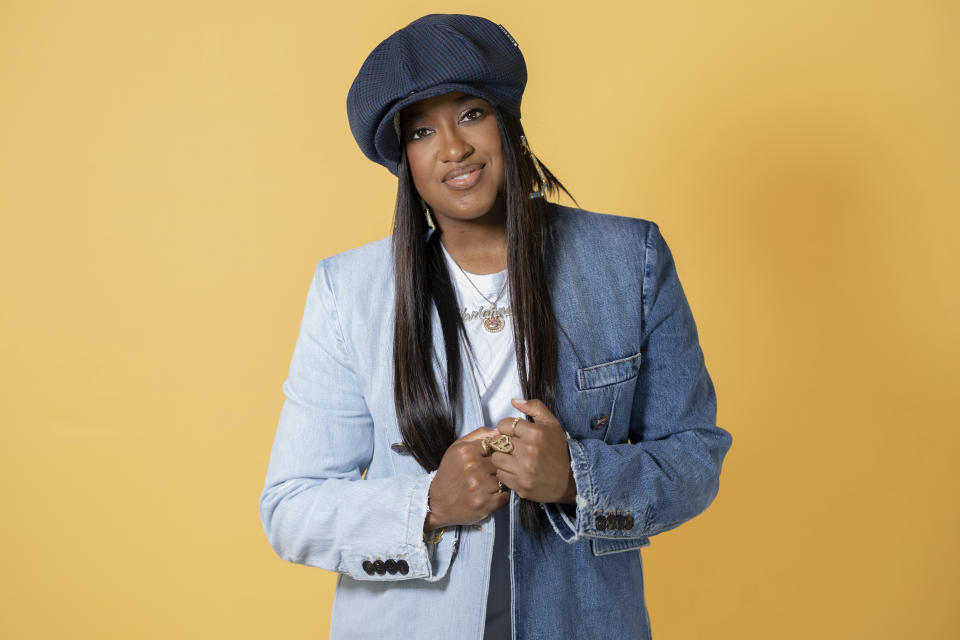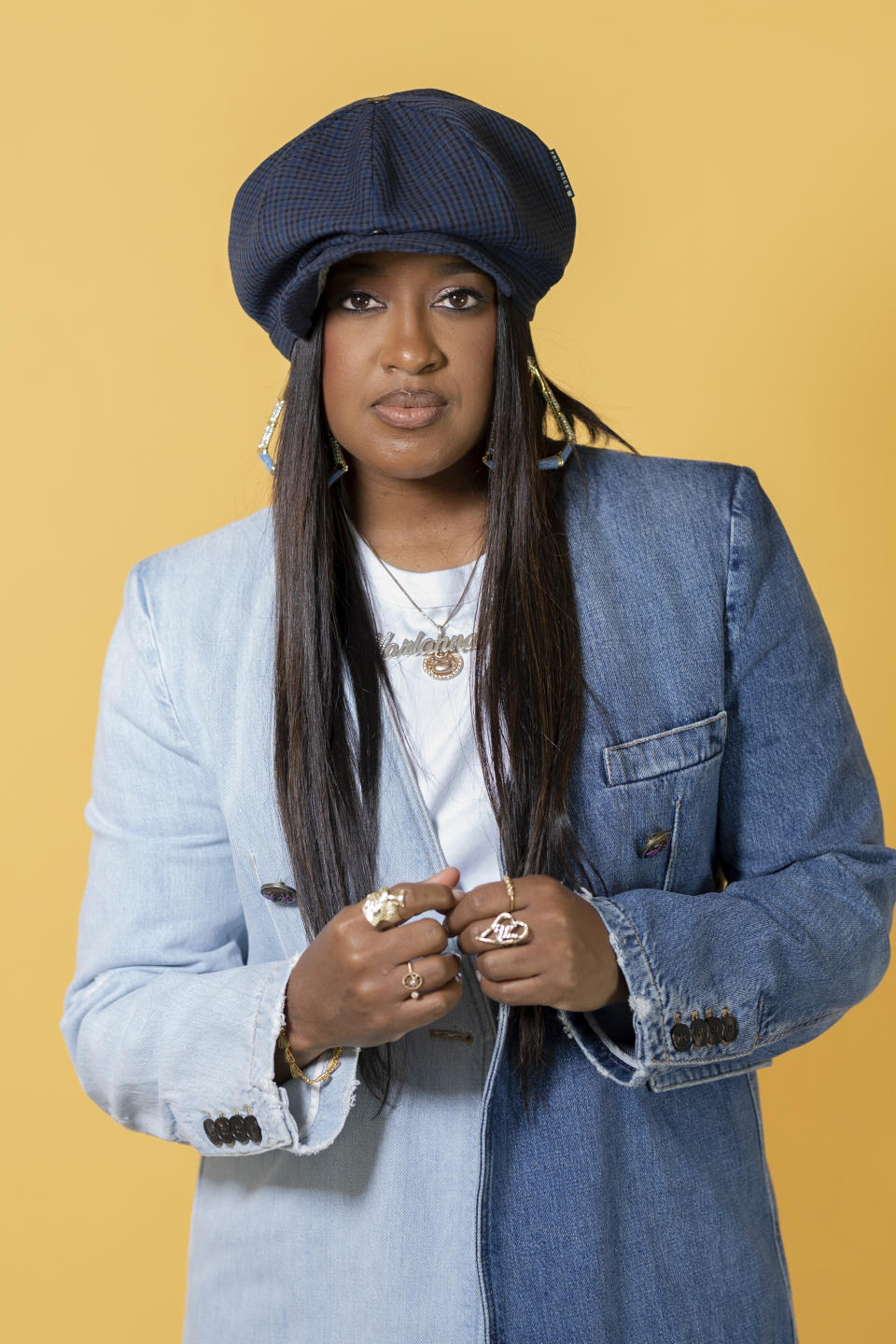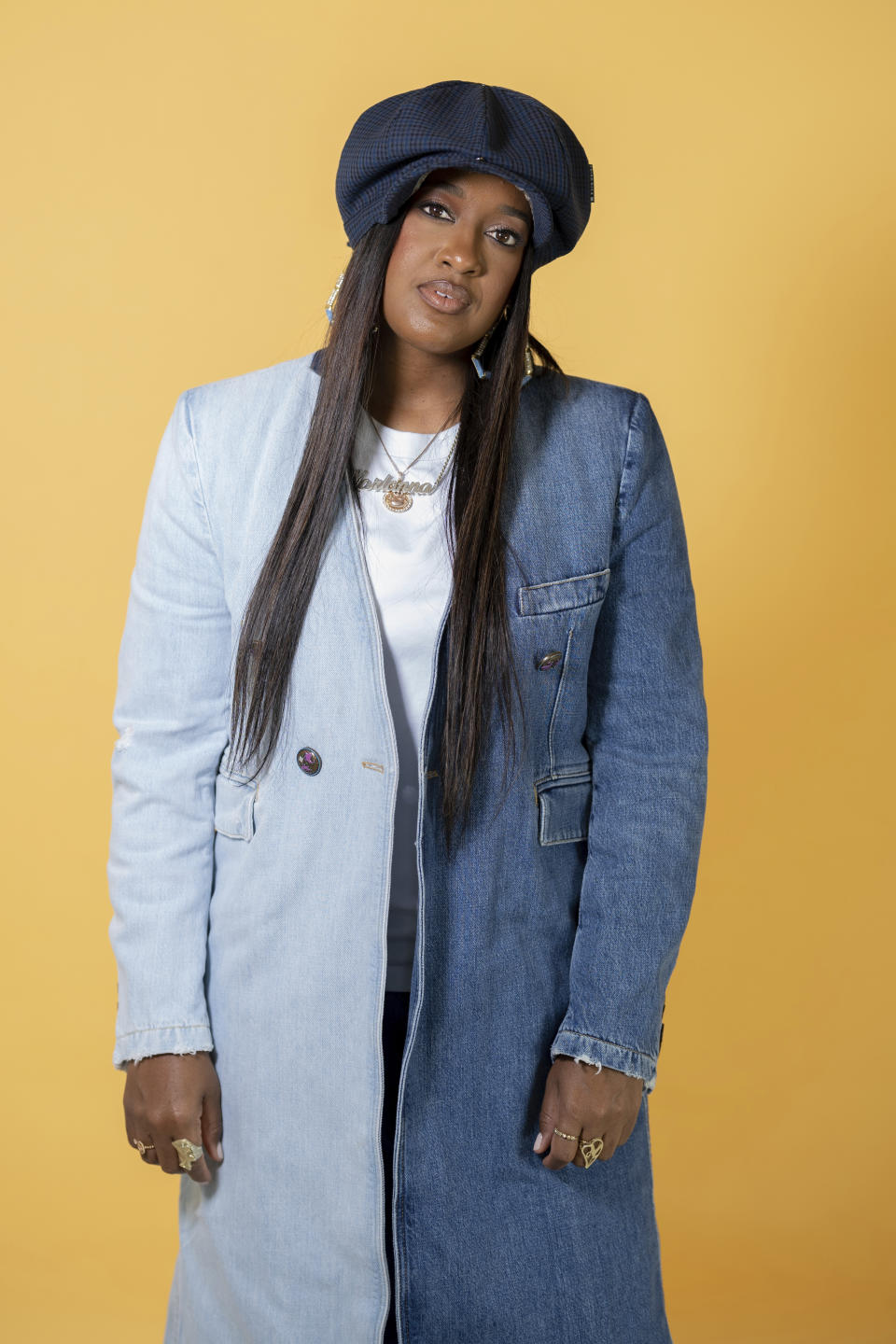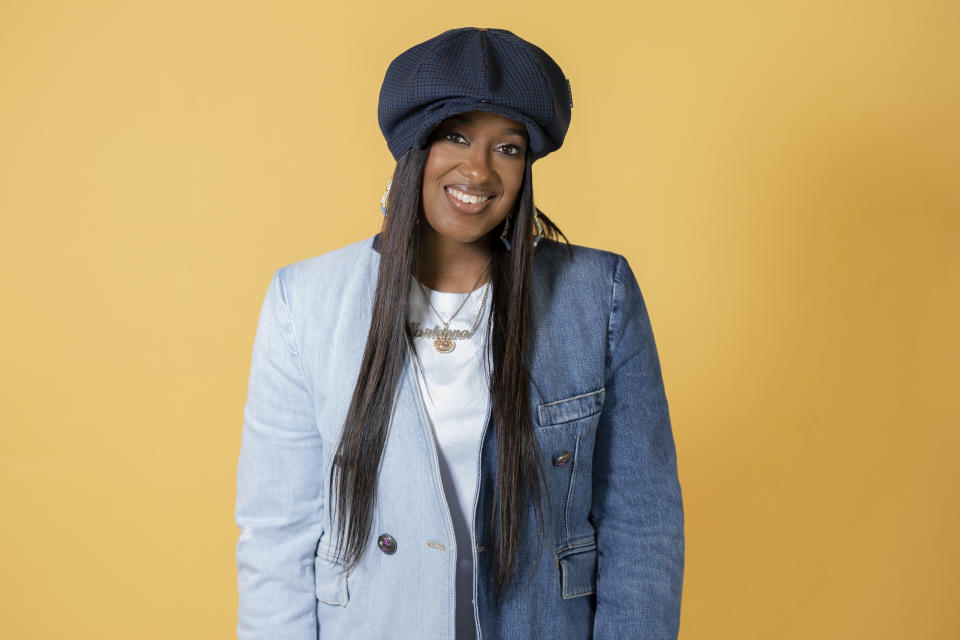Rapsody's brave new album 'Please Don't Cry' displays strength through vulnerability
NEW YORK (AP) — If truth has the power to set one free, then Rapsody’s new album, “Please Don’t Cry,” has removed her from emotional imprisonment and gifted her immeasurable liberation.
“People put up a mirror for me. I sat in the mirror myself…it was the beginning of healing. Heart-broke: Why do you feel like you can’t fill the void of whatever that was? Internally, why do you feel underappreciated?” questioned the three-time Grammy nominee. "And really allow myself, again, to just sit in a fire and burn. To forgive myself for some things. To accept some things. To learn to love myself."
Rapsody's not only frequently lauded by critics as the best female lyricist, but also as one of the best in the genre. After 2019’s critically-acclaimed “Eve” album, discussions by hip-hop purists erupted on social media and in barbershops near and far debating her potentially rivaling Kendrick Lamar for the lyrical throne. But the recognition hasn’t translated into the commercial success of some female peers — veterans like Nicki Minaj and Cardi B, or recent newcomers like Megan Thee Stallion, Latto or Ice Spice. But her plight isn’t unusual for rappers labeled as “continuous” or extremely lyrical, regardless of gender.
“I was looking at what everybody else was doing instead of worrying about myself,” she said, soft-spoken throughout the interview. “I’d see comments (saying), ‘She makes great music, but she’ll never make it because she’s not half-naked or she don’t have a No. 1 hit.’ And I had to realize that those are really false measurements.”
“Please Don’t Cry,” released in May, is by far the most personal of her four studio albums. Dwindling more than 350 potential songs down to the final 22 tracks, the bulk of the production comes from HIT-BOY, BLK ODYSSY and S1, and boasts star-powered features including Erykah Badu and Lil Wayne. The regal voice of Phylicia Rashad is also sprinkled throughout.
The North Carolina native began constructing the album several years ago after a painful breakup and toward the beginning of the global coronavirus pandemic. Personal tales have always lived within her music, but the foundation of her catalogue is anchored by expert lyricism and musicality.
“I’ve always thought that I was authentic. But at the same time, I realized there was a level of fear there — a fear of allowing myself to be seen completely. But at that time, I don’t even think I completely even knew who I was,” said the 41-year-old Marlanna Evans who kept Lauryn Hill’s “MTV Unplugged No. 2.0” project in heavy rotation while creating, along with an evolving Pinterest board filled with pictures and words for inspiration.
“Please Don't Cry” has a weightier R&B influence than past projects. Standout tracks include the Badu-assisted “3:AM,” the lead single “Asteroids,” “Stand Tall,” “Faith” and “God’s Light.” While her razor-sharp bars still slice on songs like “Raw” with Lil Wayne and Niko Brim, the album makes its mark by entering a new territory of unapologetic vulnerability. Rapsody touches on insecurities, not having a stronger female fanbase, family members battling dementia and speculation surrounding her sexuality.
On the surprisingly transparent “That One Time,” the past Stevie Wonder, Kendrick Lamar and J. Cole collaborator provides a rare glimpse into her love life and past transgressions.
“One time, I had an experience with a woman. But I also bring up that I was with somebody that wasn’t available,” said the Jehovah’s Witness-raised artist of her relationship with a married person, while suggesting her partner wasn't fully honest. “I make mistakes, too — things I say I would never do, and then I find myself in a situation that I’m not proud of. But in my life and the conversations I have, I know I’m not the only one.”
Bianca Edwards, vice president of marketing for Roc Nation, says the vulnerability displayed showcases Rapsody’s security in her music and herself.
“You have to be extremely confident to bare your soul and not care what people think,” said Edwards. “And on this project, I think that she bared a lot.”
Always advocating for female rappers, Rapsody has consistently rejected praise meant to criticize her peers. But while there are songs like “Look What You’ve Done” in which she rhymes, “Don’t lift me up throwin’ shade/At my sisters that made it out wit’ a-- and bass,” she also raps, “Everything look cookie cutter/We seen enough a—, that sh-- ain’t special no more” on “Diary of a Mad Bitch.”
“I see my name brought up a lot of times used to put other women down for how they choose to show up in this art and in their life, and I’m not here for that. I’m not trying to make myself the standard. I’m just trying to make myself another example of what women in hip-hop look like to bring harmony,” said Rapsody. “With ‘Diary,’ it was me making an observation of everybody looks the same…I know we’re not clones.”
But despite a profession where cosmetic enhancements are common among female rappers – along with sexually-charged lyrics that contribute to their pop stardom – the “Complexion (A Zulu Love)” artist says she's never considered altering her body.
“My question is why isn’t there space for me or others who are different from what we see on a mainstream level…why don’t we get those same opportunities?” asked the self-described tomboy who also suffers from Graves’ disease which can change physical appearance. “I never wanted to be anything other than who I was.”
Rapsody says while every artist dreams of creating a hit record, she’s not willing to compromise her musical integrity or chase songs that don’t feel natural to attract more fans.
“I think she already found her place,” said Edwards. “I work with a lot of artists, and I’ve met artists that are still trying to find themselves. That’s not Rap.”
A tour will launch in September with five European dates and a North American leg that will run through October.
“Please Don’t Cry” has fortified Rapsody's healing journey, and she’s better for it.
“Everybody asks me about this album, like ‘How you feeling?’ I say I feel really happy and I’m at peace. And this is the most free I’ve ever felt,” she said. “I’m not putting pressure on myself to be defined as success through other people’s measurements of what that looks like.”
___
Follow Associated Press entertainment journalist Gary Gerard Hamilton at: @GaryGHamilton on all his social media platforms.



